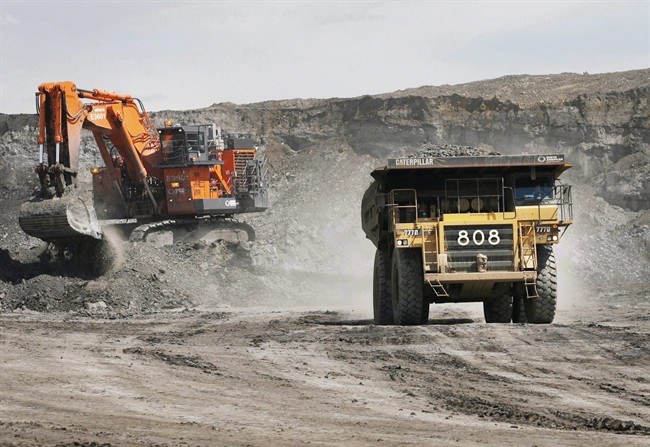CALGARY – Royal Dutch Shell is scrapping its Carmon Creek project in northwestern Alberta, citing a lack of pipelines to coastal waters as one reason for the decision.

The move comes after a review of the project’s design and costs and where it stacks up against other projects Shell has in its portfolio.
The European energy giant first announced it would build the 80,000-barrel-a-day, steam-driven operation near Peace River, Alta., in October 2013.
WATCH: Groups call on province to help keep Alberta oilsands competitive
But last March, the company said it would slow down the project while attempting to lower costs and improve its design.
However, the company now says now the project doesn’t rank in its portfolio — and one reason is the lack of infrastructure to get Canadian crude to global markets.
Shell will take a $2-billion charge against its third-quarter results because of the decision.
“We are making changes to Shell’s portfolio mix by reviewing our longer-term upstream options world-wide, and managing affordability and exposure in the current world of lower oil prices. This is forcing tough choices at Shell,” CEO Ben van Beurden said in a release.
READ MORE: Oil and gas industry struggles to balance costs and environmental pressures
On Wednesday, the Town of Peace River issued a statement saying Shell’s decision was “disappointing” and concerning for the town and Albertans who will be “directly impacted by the decision.”
The town’s full statement:
As a region, we have all collectively benefited from the oil industry and we will all feel the pinch.
Peace River’s Mayor, Tom Tarpey, expressed empathy for those working on the project.
“When I heard the news my first thought was concern for those who have literally poured their hearts and souls into making this project a reality,” he said. “This has really been a punch to the solar plexus for the engineers and management team involved.”
Although the news is troubling it does not represent a lack of faith in heavy oil production or exploration in Alberta’s northwest. It is our understanding that pipeline access was one of the major factors in the closure.
Our town has benefited tremendously from Shell’s investment in our community. They have helped to fund a number of important community projects, they were also the major backer behind Northern Lakes mobile steam lab and the Peace Regional Airport’s recent upgrades.
Fortunately this cancellation will not impact the airport project – this is an important transportation infrastructure project that has helped to connect Peace River to the rest of Canada and the world.
In the coming days Peace River’s Mayor and Council will be reaching out to Federal and Provincial authorities to outline our need for greater infrastructure in the north to support industry development. That means pipelines but also roads, railways, bridges, and market access to ensure the long-term sustainability of our industries.
We are still a great place to live and work and with strong industries like forestry, agriculture and power generation we will weather this change of fortunes in the oil market.
U.S. benchmark crude is at around $43 a barrel — a far cry from the more than US$107 a barrel highs it hit in the middle of 2014.
Pipelines that would get Canadian oil players a better price for their product — like Enbridge’s (TSX:ENB) Northern Gateway pipeline to the West Coast and TransCanada’s (TSX:TRP) Energy East pipeline to the East Coast — face an uncertain future amid First Nations opposition and regulatory delays.
“Public opposition to new tar sands pipelines is keeping the carbon in the ground, giving us time to develop the alternatives,” said Keith Stewart of Greenpeace Canada.
“We hope our new federal government will put its weight behind building the green energy economy we need to stop climate change, rather than backing pipelines like the Harper government did.”



Comments